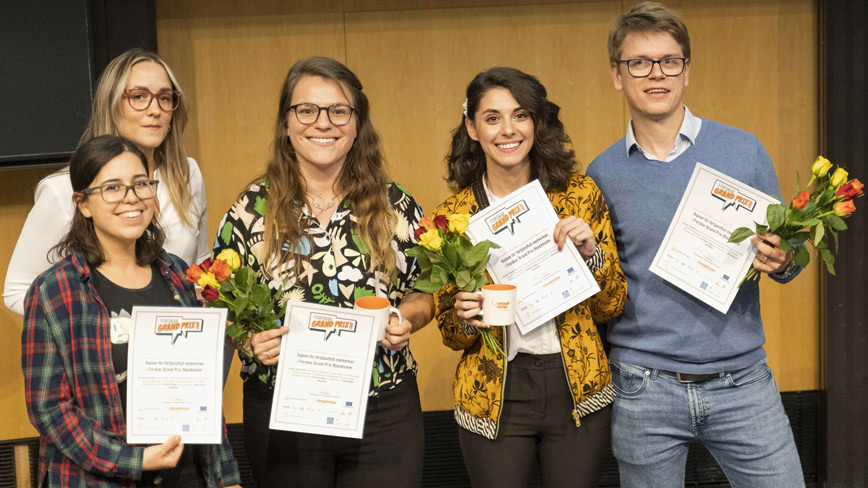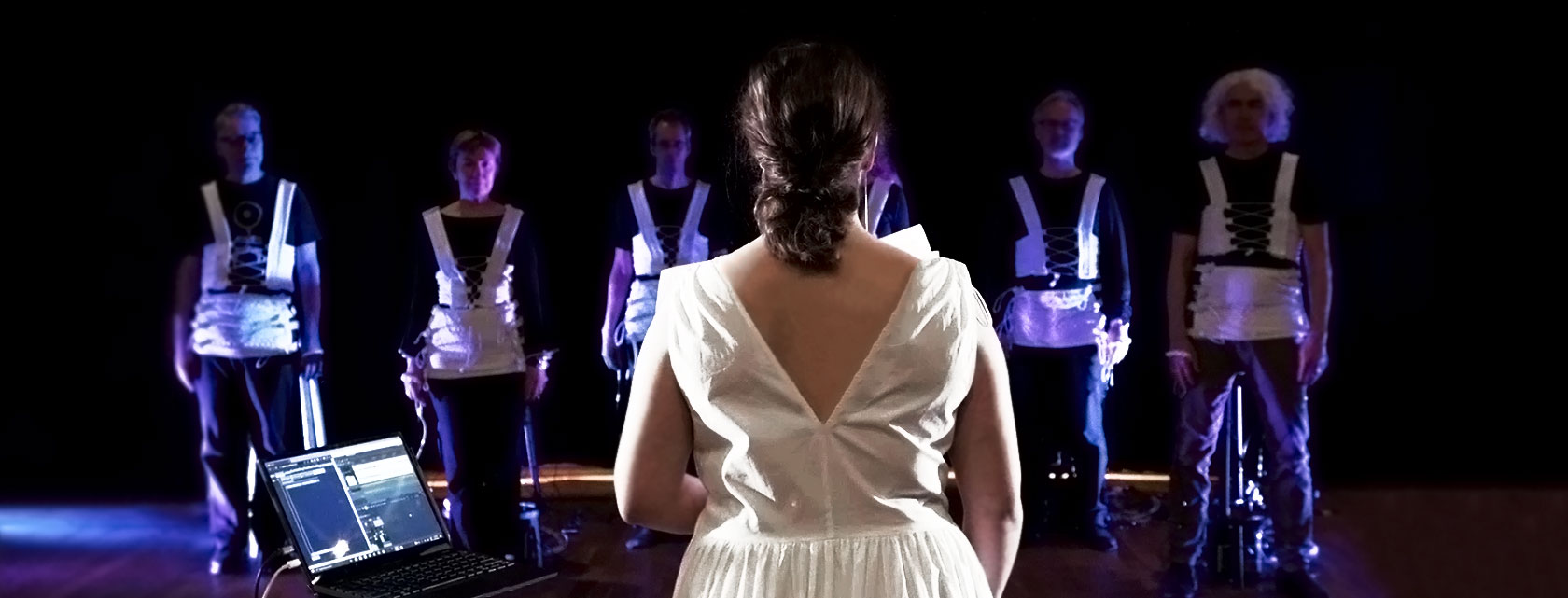How you speak matters – not only what you say
- Use your voice to guide the audience

The Stockholm region competition of the Forskar Grand Prix took place during ForskarFredag on 30 September. Sanne van Waveren from the department of robotics, perception and learning took second place. Read about her experience in communicating with a general audience.
Congratulations, Sanne. How does it feel?
– The ForskarFredag Researcher Grand Prix has been a great learning experience. Communicating my research with a general audience required me to take a different approach than giving a conference talk. I am happy that I got this opportunity to share my experience as a researcher, a woman in technology, and someone with an interdisciplinary background. I highly recommend participating in science communication events to everyone who gets the chance. Do it, even when it feels intimidating at first!
How many hours did you practice?
– I started conceptualising the talk before summer but revised my content after feedback in the coaching sessions that were part of the competition. The good thing about a 4-minute speech is that you can squeeze a practice round in easily. I practised every evening at least once. It's great to practice; many things can happen during talks that you cannot prepare for, but at least I could rely on my story.
Tell us briefly about your research.
– Robots still need to learn many things, like avoiding certain areas such as carpets because they can get stuck on them, or that mayonnaise might be a preferred alternative to ketchup. People can often tell them what they should or should not do; "do not move onto carpets" or "if we run out of ketchup, use mayonnaise instead". But we cannot expect everyone to learn a programming language to be able to instruct robots. I am interested in how we can translate what people know into something robots can use. I investigate how we incorporate human knowledge and preferences into robotic systems that work with and around people. My research contributes to developing robots that automatically correct their behaviour with the help of people.
Did you learn something from the competition you will use when pitching your research in other contexts?
– This was my first experience with a science competition. I noticed first-hand how much effort it requires to create a talk for a general audience in a specific age range. What helped me were the coaching sessions in which I could get input from someone who is not a colleague and could give the perfect outside perspective. I also learned that speaking matters in addition to what you say—using your voice to guide the audience. I loved it. I will take this experience with me in all my future talks - this was just the beginning. :-)
Contact
Related news

KTH researchers developing new approaches to robotics
Robotics has the potential to unlock large benefits for society, but new applications, such as assistive robotics functions in healthcare require fundamental breakthroughs in how robots reason and int...
Read the article
New clothing design mimics muscles used when singing
Researchers develop garment that can emulate what it feels like when someone is singing, breaking new ground in making performing arts more interactive and immersive.
Read the article